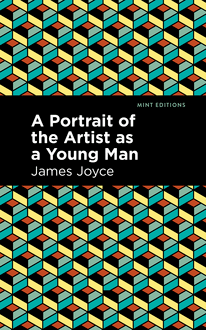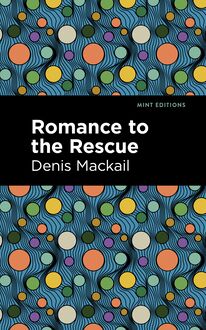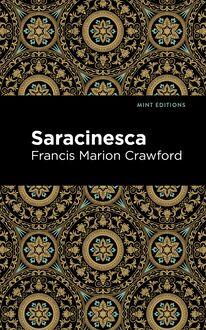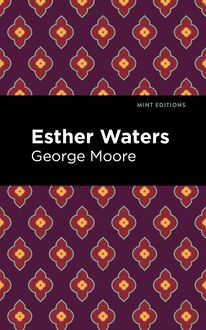-
 Univers
Univers
-
 Ebooks
Ebooks
-
 Livres audio
Livres audio
-
 Presse
Presse
-
 Podcasts
Podcasts
-
 BD
BD
-
 Documents
Documents
-
- Cours
- Révisions
- Ressources pédagogiques
- Sciences de l’éducation
- Manuels scolaires
- Langues
- Travaux de classe
- Annales de BEP
- Etudes supérieures
- Maternelle et primaire
- Fiches de lecture
- Orientation scolaire
- Méthodologie
- Corrigés de devoir
- Annales d’examens et concours
- Annales du bac
- Annales du brevet
- Rapports de stage
La lecture à portée de main
Vous pourrez modifier la taille du texte de cet ouvrage
Découvre YouScribe en t'inscrivant gratuitement
Je m'inscrisDécouvre YouScribe en t'inscrivant gratuitement
Je m'inscrisEn savoir plus
Vous pourrez modifier la taille du texte de cet ouvrage
En savoir plus

Description
The Odd Women (1893) is a novel by George Gissing. Inspired by a report of over one million more women living in Britain than men, Gissing sought to explore the societal and personal implications of unmarried life while exploring the demands of the growing feminist movement. The Odd Women is a story of romance, independence, and the pressures of society that poses important questions about convention in Victorian England while proving surprisingly relevant for our own times. After moving together to London, the unmarried Madden sisters rekindle their relationship with Rhoda, a neighbor and friend from their childhood in Clevedon. Rhoda, also unmarried, lives with Mary Barfoot, with whom she runs a secretarial school for young women. While Monica, the youngest Madden sister, is bullied into marrying Edmund Widdowson, a middle-aged brute, Rhoda rejects the advances of Mary’s cousin Everard. Opposed to marriage altogether, Rhoda is initially able to avoid the fate of Monica, who suffers in her stifling relationship with Edmund and longs for a younger, romantic man named Bevis. Striking up an affair, Monica meets secretly with Bevis while attempting to avoid the suspicions of her jealous, overbearing husband. When a detective hired by Edmund sees Monica knock on the door of Everard’s apartment, Edmund sets out to smear the innocent man’s name just as he has secured an engagement with the reluctant Rhoda. With a beautifully designed cover and professionally typeset manuscript, this edition of George Gissing’s The Odd Women is a classic work of English literature reimagined for modern readers.
Sujets
Informations
| Publié par | Mint Editions |
| Date de parution | 14 mai 2021 |
| Nombre de lectures | 0 |
| EAN13 | 9781513286525 |
| Langue | English |
| Poids de l'ouvrage | 4 Mo |
Informations légales : prix de location à la page 0,0500€. Cette information est donnée uniquement à titre indicatif conformément à la législation en vigueur.
Extrait
The Odd Women
George Gissing
The Odd Women was first published in 1893.
This edition published by Mint Editions 2021.
ISBN 9781513281506 | E-ISBN 9781513286525
Published by Mint Editions®
minteditionbooks.com
Publishing Director: Jennifer Newens
Design & Production: Rachel Lopez Metzger
Project Manager: Micaela Clark
Typesetting: Westchester Publishing Services
C ONTENTS
I. T HE F OLD AND THE S HEPHERD
II. A DRIFT
III. A N I NDEPENDENT W OMAN
IV. M ONICA ’ S M AJORITY
V. T HE C ASUAL A CQUAINTANCE
VI. A C AMP OF THE R ESERVE
VII. A S OCIAL A DVANCE
VIII. C OUSIN E VERARD
IX. T HE S IMPLE F AITH
X. F IRST P RINCIPLES
XI. A T N ATURE ’ S B IDDING
XII. W EDDINGS
XIII. D ISCORD OF L EADERS
XIV. M OTIVES M EETING
XV. T HE J OYS OF H OME
XVI. H EALTH FROM THE S EA
XVII. T HE T RIUMPH
XVIII. A R EINFORCEMENT
XIX. T HE C LANK OF THE C HAINS
XX. T HE F IRST L IE
XXI. T OWARDS THE D ECISIVE
XXII. H ONOUR IN D IFFICULTIES
XXIII. I N A MBUSH
XXIV. T RACKED
XXV. T HE F ATE OF THE I DEAL
XXVI. T HE U NIDEAL T ESTED
XXVII. T HE R EASCENT
XXVIII. T HE B URDEN OF F UTILE S OULS
XXIX. C ONFESSION AND C OUNSEL
XXX. R ETREAT WITH H ONOUR
XXXI. A N EW B EGINNING
I
T HE F OLD AND THE S HEPHERD
“So to-morrow, Alice,” said Dr. Madden, as he walked with his eldest daughter on the coast-downs by Clevedon, “I shall take steps for insuring my life for a thousand pounds.”
It was the outcome of a long and intimate conversation. Alice Madden, aged nineteen, a plain, shy, gentle-mannered girl, short of stature, and in movement something less than graceful, wore a pleased look as she glanced at her father’s face and then turned her eyes across the blue channel to the Welsh hills. She was flattered by the confidence reposed in her, for Dr. Madden, reticent by nature, had never been known to speak in the domestic circle about his pecuniary affairs. He seemed to be the kind of man who would inspire his children with affection: grave but benign, amiably diffident, with a hint of lurking mirthfulness about his eyes and lips. And to-day he was in the best of humours; professional prospects, as he had just explained to Alice, were more encouraging than hitherto; for twenty years he had practised medicine at Clevedon, but with such trifling emolument that the needs of his large family left him scarce a margin over expenditure; now, at the age of forty-nine—it was 1872—he looked forward with a larger hope. Might he not reasonably count on ten or fifteen more years of activity? Clevedon was growing in repute as a seaside resort; new houses were rising; assuredly his practice would continue to extend.
“I don’t think girls ought to be troubled about this kind of thing,” he added apologetically. “Let men grapple with the world; for, as the old hymn says, ‘’tis their nature to.’ I should grieve indeed if I thought my girls would ever have to distress themselves about money matters. But I find I have got into the habit, Alice, of talking to you very much as I should talk with your dear mother if she were with us.”
Mrs. Madden, having given birth to six daughters, had fulfilled her function in this wonderful world; for two years she had been resting in the old churchyard that looks upon the Severn sea. Father and daughter sighed as they recalled her memory. A sweet, calm, unpretending woman; admirable in the domesticities; in speech and thought distinguished by a native refinement, which in the most fastidious eyes would have established her claim to the title of lady. She had known but little repose, and secret anxieties told upon her countenance long before the final collapse of health.
“And yet,” pursued the doctor—doctor only by courtesy—when he had stooped to pluck and examine a flower, “I made a point of never discussing these matters with her. As no doubt you guess, life has been rather an uphill journey with us. But the home must be guarded against sordid cares to the last possible moment; nothing upsets me more than the sight of those poor homes where wife and children are obliged to talk from morning to night of how the sorry earnings shall be laid out. No, no; women, old or young, should never have to think about money.”
The magnificent summer sunshine, and the western breeze that tasted of ocean, heightened his natural cheeriness. Dr. Madden fell into a familiar strain of prescience.
“There will come a day, Alice, when neither man nor woman is troubled with such sordid care. Not yet awhile; no, no; but the day will come. Human beings are not destined to struggle for ever like beasts of prey. Give them time; let civilization grow. You know what our poet says: ‘There the common sense of most shall hold a fretful realm in awe—’”
He quoted the couplet with a subdued fervour which characterized the man and explained his worldly lot. Elkanah Madden should never have entered the medical profession; mere humanitarianism had prompted the choice in his dreamy youth; he became an empiric, nothing more. “Our poet,” said the doctor; Clevedon was chiefly interesting to him for its literary associations. Tennyson he worshipped; he never passed Coleridge’s cottage without bowing in spirit. From the contact of coarse actualities his nature shrank.
When he and Alice returned from their walk it was the hour of family tea. A guest was present this afternoon; the eight persons who sat down to table were as many as the little parlour could comfortably contain. Of the sisters, next in age to Alice came Virginia, a pretty but delicate girl of seventeen. Gertrude, Martha, and Isabel, ranging from fourteen to ten, had no physical charm but that of youthfulness; Isabel surpassed her eldest sister in downright plainness of feature. The youngest, Monica, was a bonny little maiden only just five years old, dark and bright-eyed.
The parents had omitted no care in shepherding their fold. Partly at home, and partly in local schools, the young ladies had received instruction suitable to their breeding, and the elder ones were disposed to better this education by private study. The atmosphere of the house was intellectual; books, especially the poets, lay in every room. But it never occurred to Dr. Madden that his daughters would do well to study with a professional object. In hours of melancholy he had of course dreaded the risks of life, and resolved, always with postponement, to make some practical provision for his family; in educating them as well as circumstances allowed, he conceived that he was doing the next best thing to saving money, for, if a fatality befell, teaching would always be their resource. The thought, however, of his girls having to work for money was so utterly repulsive to him that he could never seriously dwell upon it. A vague piety supported his courage. Providence would not deal harshly with him and his dear ones. He enjoyed excellent health; his practice decidedly improved. The one duty clearly before him was to set an example of righteous life, and to develop the girls’ minds—in every proper direction. For, as to training them for any path save those trodden by English ladies of the familiar type, he could not have dreamt of any such thing. Dr. Madden’s hopes for the race were inseparable from a maintenance of morals and conventions such as the average man assumes in his estimate of women.
The guest at table was a young girl named Rhoda Nunn. Tall, thin, eager-looking, but with promise of bodily vigour, she was singled at a glance as no member of the Madden family. Her immaturity (but fifteen, she looked two years older) appeared in nervous restlessness, and in her manner of speaking, childish at times in the hustling of inconsequent thoughts, yet striving to imitate the talk of her seniors. She had a good head, in both senses of the phrase; might or might not develop a certain beauty, but would assuredly put forth the fruits of intellect. Her mother, an invalid, was spending the summer months at Clevedon, with Dr. Madden for medical adviser, and in this way the girl became friendly with the Madden household. Its younger members she treated rather condescendingly; childish things she had long ago put away, and her sole pleasure was in intellectual talk. With a frankness peculiar to her, indicative of pride, Miss Nunn let it be known that she would have to earn her living, probably as a school teacher; study for examinations occupied most of her day, and her hours of leisure were frequently spent either at the Maddens or with a family named Smithson—people, these latter, for whom she had a profound and somewhat mysterious admiration. Mr. Smithson, a widower with a consumptive daughter, was a harsh-featured, rough-voiced man of about five-and-thirty, secretly much disliked by Dr. Madden because of his aggressive radicalism; if women’s observation could be trusted, Rhoda Nunn had simply fallen in love with him, had made him, perhaps unconsciously, the object of her earliest passion. Alice and Virginia commented on the fact in their private colloquy with a shamefaced amusement; they feared that it spoke ill for the young lady’s breeding. None the less they thought Rhoda a remarkable person, and listened to her utterances respectfully.
“And what is your latest paradox, Miss Nunn?” inquired the doctor, with grave facetiousness, when he had looked round the young faces at his board.
“Really, I forget, doctor. Oh, but I wanted to ask you, Do you think women ought to sit in Parliament?”
“Why, no,” was the response, as if after due consideration. “If they are there at all they ought to stand.”
“Oh, I can’t get you to talk seriously,” rejoined Rhoda, with an air of vexation, whilst the others were good-naturedly laughing. “Mr. Smithson thinks there ought to be female members of Parliament.”
“Does he? Have the girls told you that there’s a nightingale in Mr. Williams’s orchard?”
It was always thus. Dr. Madden did not care to discuss even playfully the r
-
 Univers
Univers
-
 Ebooks
Ebooks
-
 Livres audio
Livres audio
-
 Presse
Presse
-
 Podcasts
Podcasts
-
 BD
BD
-
 Documents
Documents
-
Jeunesse
-
Littérature
-
Ressources professionnelles
-
Santé et bien-être
-
Savoirs
-
Education
-
Loisirs et hobbies
-
Art, musique et cinéma
-
Actualité et débat de société
-
Jeunesse
-
Littérature
-
Ressources professionnelles
-
Santé et bien-être
-
Savoirs
-
Education
-
Loisirs et hobbies
-
Art, musique et cinéma
-
Actualité et débat de société
-
Actualités
-
Lifestyle
-
Presse jeunesse
-
Presse professionnelle
-
Pratique
-
Presse sportive
-
Presse internationale
-
Culture & Médias
-
Action et Aventures
-
Science-fiction et Fantasy
-
Société
-
Jeunesse
-
Littérature
-
Ressources professionnelles
-
Santé et bien-être
-
Savoirs
-
Education
-
Loisirs et hobbies
-
Art, musique et cinéma
-
Actualité et débat de société
- Cours
- Révisions
- Ressources pédagogiques
- Sciences de l’éducation
- Manuels scolaires
- Langues
- Travaux de classe
- Annales de BEP
- Etudes supérieures
- Maternelle et primaire
- Fiches de lecture
- Orientation scolaire
- Méthodologie
- Corrigés de devoir
- Annales d’examens et concours
- Annales du bac
- Annales du brevet
- Rapports de stage




















